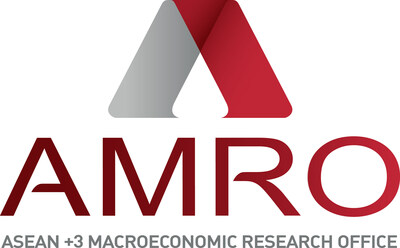ASEAN+3 Policymakers Should Rebuild Policy Space and Address Long-term Challenges Amid Positive Outlook
Comunicato Precedente

Comunicato Successivo

The ASEAN region is expected to benefit from a combination of these favorable factors, with growth in 2024 and 2025 forecast at 4.8 and 4.9 percent, respectively, while growth in the Plus-3 region is expected to remain robust at 4.3 and 4.1 percent, respectively.
With global commodity prices continuing to stabilize, inflation in ASEAN+3—excluding Lao PDR and Myanmar—is expected to moderate from 2.8 percent last year to 2.5 percent in 2024, before easing further to 2.3 percent in 2025.
Nevertheless, AMRO warns against taking the region's positive momentum for granted in light of potential disruptors to the growth trajectory.
"A sudden spike in global commodity prices, weaker-than-expected growth in China, or escalating geopolitical tensions could turn the tide for the region," said AMRO Chief Economist Hoe Ee Khor. "Now that the current outlook is quite positive, given robust growth and gradual disinflation, ASEAN+3 economies need to rebuild policy space as much as they can."
It has been nearly a year since the World Health Organization declared an end to the COVID-19 pandemic and ASEAN+3 continues to grapple with pandemic scars. The global health crisis has taken a toll not only on economic activity, but also on the labor force and capital formation, especially infrastructure. Trend growth for most regional economies has remained lower than the pre-pandemic period, and the recovery in capital formation has been particularly weak.
"Revitalizing growth requires boosting investment and embracing technology to raise productivity and resilience, especially of smaller firms," said Khor. "Stepping up regional collaboration can be instrumental in achieving this goal."
AMRO also calls on ASEAN+3 economies to work more closely together in response to three key secular trends: aging, global trade reconfiguration, and rapid technological changes.
While these structural shifts pose various risks, they also create new sources of growth and productivity gains. Balancing the risks with the opportunities they offer will help ASEAN+3 secure sustainable, resilient, and inclusive growth in the long term.
"Aging presents a critical challenge for the ASEAN+3 region," said Allen Ng, AMRO Group Head and one of the lead authors of the AREO report. "At the same time, it's important to recognize that the region is not just aging. We are also living longer and healthier. Adapting to this 'longevity dividend' and enabling our populations to age productively will be crucial for the region's future."

Similarly, while the ongoing trade reconfiguration is casting concerns about the region's time-tested export strategies, it is also creating new opportunities. One example is the spike in FDI inflows into several ASEAN economies and strong growth in ASEAN+3's exports of "modern" services, especially those that can be delivered digitally.
However, concerns are rising about technology's potential impact on the future of industries and jobs in ASEAN+3, especially with the rapid progress in artificial intelligence technologies such as Generative AI.
"Navigating these crosscurrents requires prioritizing robust policies to secure growth under various possible futures. For ASEAN+3, this includes deepening infrastructure development as well as promoting innovation and social inclusion," Ng said.
The full findings of the AREO 2024 report can be found on the AMRO website.
About AMRO
The ASEAN+3 Macroeconomic Research Office (AMRO) is an international organization established to contribute toward securing macroeconomic and financial resilience and stability of the ASEAN+3 region, comprising 10 members of the Association of Southeast Asian Nations (ASEAN) and China; Hong Kong, China; Japan; and Korea. AMRO's mandate is to conduct macroeconomic surveillance, support regional financial arrangements, and provide technical assistance to the members. In addition, AMRO also serves as a regional knowledge hub and provides support to ASEAN+3 financial cooperation.
Visit our website and follow us on LinkedIn for more updates.
Logo - https://mma.prnewswire.com/media/2048913/AMRO_ColorRGB_FA_Logo.jpg
![]() View original content:https://www.prnewswire.co.uk/news-releases/asean3-policymakers-should-rebuild-policy-space-and-address-long-term-challenges-amid-positive-outlook-302110213.html
View original content:https://www.prnewswire.co.uk/news-releases/asean3-policymakers-should-rebuild-policy-space-and-address-long-term-challenges-amid-positive-outlook-302110213.html

Ufficio Stampa
PR Newswire (Leggi tutti i comunicati)
209 - 215 Blackfriars Road
LONDON United Kingdom




